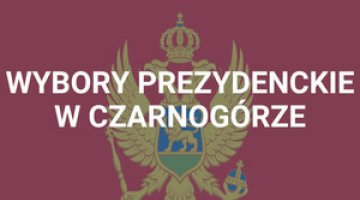The parliamentary elections in Montenegro
The parliamentary elections in Montenegro on 16 October were won by the Democratic Party of Socialists (DPS) under Prime Minister Milo Djukanović, which has been in power since 1991, on a 71% turnout. According to preliminary results, the DPS received 41% of the vote (36 seats out of 81 in the parliament). The Social Democrats of Montenegro (SD), which cooperates closely with the DPS, also won two seats. The following opposition forces also entered parliament: the pro-Serb and pro-Russian Democratic Front coalition (DF, 18 seats), the eclectic Ključ coalition (9 seats), the centre-left Democratic Montenegro (8 seats) and the Social Democratic Party (SDP, 4 seats). Four seats were won by national minority parties (Bosnian, Albanian and Croatian). The night before the elections, Montenegrin police detained 20 Serbian citizens on charges of planning acts of terrorism and organising a coup. The arrests were criticised by the Prime Minister of Serbia, Aleksandar Vučić, who suggested that the actual reasons were different than those given by the Montenegrin government. In connection with the police action, four opposition parties have refused to recognise the results of the election, in contrast to representatives of the EU and NATO.
Commentary
· These elections came five months after NATO foreign ministers signed a protocol on Montenegro’s accession to the Alliance, and were an informal plebiscite on the country’s geopolitical orientation. The opposition has been calling for a referendum on NATO membership, although they have not opposed joining unanimously. A significant part of the opposition is focused on the internal problems of Montenegro, highlighting the country’s systemic corruption and high unemployment. However PM Djukanović presents himself as the only guarantor of the continuation of Montenegro’s pro-Western orientation, and has tried to play up the divisions within the opposition, accusing it of working in the interests of Russia.
· The weaker electoral result for Djukanović’s ruling camp is the result of the collapse in January this year of the European Montenegro coalition (the DPS was abandoned by the Liberal Party and SDP). Despite this, Djukanović’s party will probably form a coalition with the SD and the national minorities, and thus maintain power. The fragmented and ideologically heterogeneous opposition won 39 seats, but has little hope of joining forces with the national minorities and creating a broad front against the DPS. One of the main obstacles is the strong pro-Serb and pro-Russian trend within the opposition, which the pro-Western minority parties cannot accept. The consequence of the opposition’s refusal to recognise the election results will probably be a boycott of parliament’s work and a serious political crisis, which may complicate the process of joining NATO. The opposition’s aim is probably to internationalise the dispute and bring about early elections.
· The arrest of a group of Serbs on the eve of the election should be treated as an element of the DPS’s election campaign. This is proved by the fact that the operation, which was controlled by Djukanović supporters among the police and special services, was not coordinated in advance with the head of the interior ministry (who is not a member of the DPS). It is possible that the Serbs had planned to cause social unrest in connection with the elections (their alleged leader is linked to the Zavetnici, a radical nationalist and pro-Russian movement). They had most likely been under observation for some time by the Montenegrin security services, who were able to provide the personal data of the members of the group immediately after their detention.



